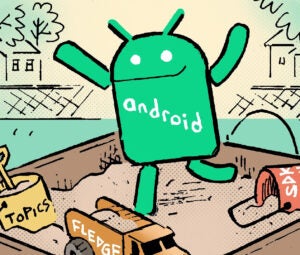 Device manufacturer Lenovo wants its advertising to start contextually relevant conversations with its consumers, rather than blast them with one-way messages about its brand.
Device manufacturer Lenovo wants its advertising to start contextually relevant conversations with its consumers, rather than blast them with one-way messages about its brand.
“Sometimes, brands go wrong [by] looking at digital media in very a traditional way, like spending TV media online or taking ads and looking for display space,” said David Roman, chief marketing officer at Lenovo. “That’s where people get disappointed.”
Lenovo, which buys about half its media programmatically, is applying more data to its marketing strategy and rethinking where marketing fits into the organization.
“The things that work best use a combination of digital and social in the context of what users are looking for,” Roman said. “An advertiser interrupting your smartphone experience with an ad is so distasteful and wrong.”
Roman spoke with AdExchanger.
AdExchanger: How are you using data as a marketer?
DAVID ROMAN: People make the mistake of assuming that data changes the proposition of what we do. It doesn’t.
Marketing has always been an insight translated into something that has an impact. Today, companies have access to the same information [from data providers], so the bar has gone up. We see what’s working and can change it in real time. But the basic principal of marketing doesn’t change. [Data is] a competitive advantage.
Another aspect that will be just as important is our responsibility as stewards of that data and the risk we’re exposing our customers to [if we use it] the wrong way. We break their confidence by going to them in ways that are too direct.
What precautions are you taking to keep your consumers’ data safe?
We have to look very carefully at data privacy, even from an ethical standpoint. If we don’t grow that in parallel with our tools, there could be backlash. We’re working with the legal team to see, what are consumers comfortable with? What do they want and expect?
Let’s say somebody has a problem with a machine. They expect us to have all of that information at our fingertips. If we don’t, and if our systems aren’t talking to each other, the customer is appalled.
How are you changing as an organization to facilitate customer expectations?
It requires expertise we haven’t traditionally had. We’re bringing in younger people that are more comfortable with social media.
We have a stronger connection with IT. We have a group that focuses on data and analytics [and] provides a service across the company, so we’re working with teams we weren’t before.
What partners are helping you with this transformation?
It’s a patchwork. Facebook provides us with a lot of understanding on how to use data properly. We have the same thing with Google.
Does it make you uncomfortable to rely on Facebook and Google for expertise when you spend so much money with them?
Yes and no. It’s part of the process of technology. When you’re a first mover in a new space, you have a very large share of the market. Over time, it evens out.
These companies have been great partners. They go out of their way to help us do better because that’s how they grow. Because they’re so profitable, they don’t have some of the short-term constraints that other companies have.
How do you work with agencies?
Agencies bring us creative, best practices, speed of execution and specialized people.
There’s a trend toward doing things inside. For example, we’re working [to figure out] the creative paradigms for augmented reality since we’re developing the technology. Rather than investing in an agency to learn about that, we may as well learn ourselves.
The other thing is physical reaction time. When you’ve got real-time data, if you don’t have the ability to change it in real time, you’re not leveraging that information.
Are you buying media internally?
We do some with agencies, some ourselves. Right now, it’s probably less in-house.
What will Lenovo’s marketing department look like in two to three years?
We’ll be more focused on our customers and audiences. Engaging with customers now means listening, getting feedback and trying it out every day. We need an organization that is much more in tune with that. A lot of it is attitude and getting people to think and work that way.
This interview has been edited.















